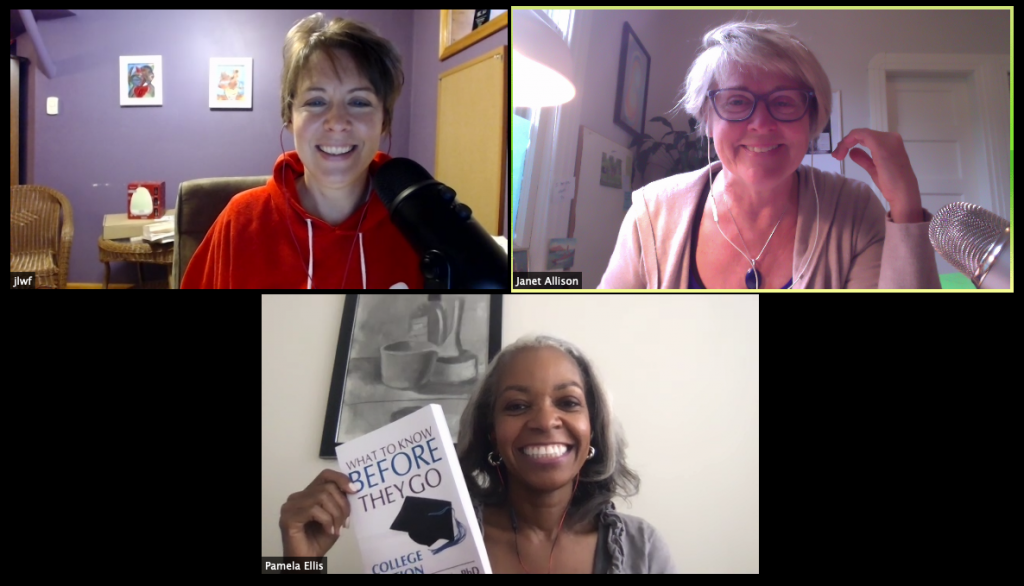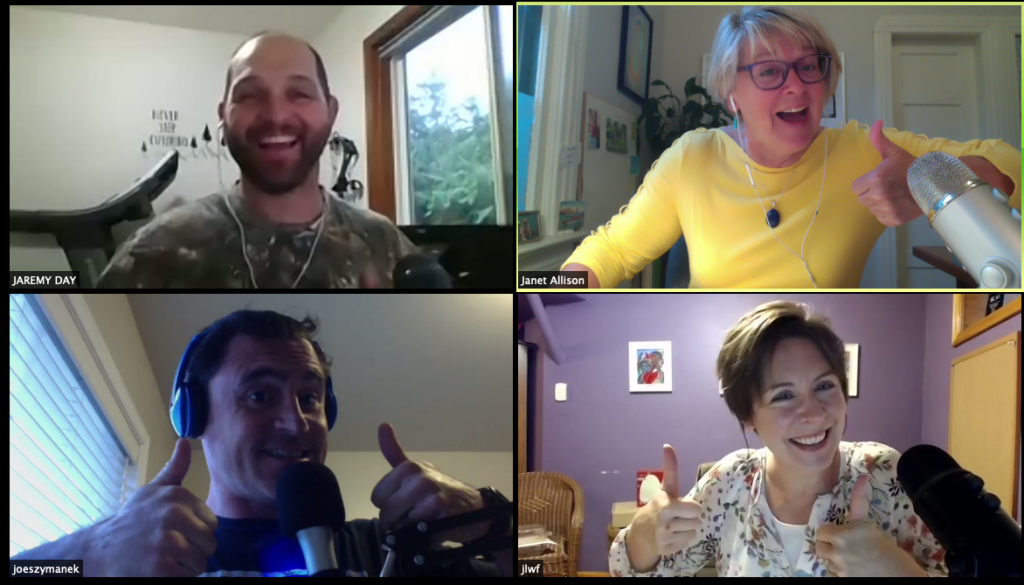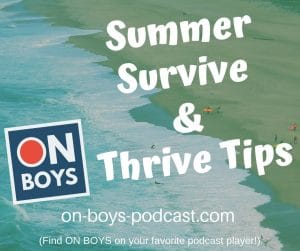Five years ago, my then-eight-year-old son pulled himself around the bases on his belly. It was the postscript to a day of Independence Day celebrations, and his spontaneous endeavor taught me a lot about encouraging independence — and a lot about how well-meaning adults can inadvertently interfere with boys’ development.
This year’s 4th of July celebration looks a little different. My boys are all teenagers now. (Except for my oldest, who is a bona fide adult.) Not one of them ran the bases last night after our community fireworks; they were too busy socializing with friends. None of them actually watched the fireworks with me, though they did stop over to visit with the assembled aunts, uncles and cousins. And it was wonderful! This year, I’m enjoying my boys’ independence, as well as my own freedom.
Despite marketing to the contrary, summer is not an idyllic time for most of us — least of all for working parents. But this summer is different. I’m no longer the ringleader/camp director. My boys don’t need me to manage their activities. For the most part, they come and go independently. We’re all pursuing our own interests and responsibilities.
Of course, it’s taken us many years to get to this point! If summer is a point of stress for you, check out the On Boys podcast episodes we published in June 2019:
Managing the Transition to College (June 6 episode)

The summer between high school and college can be stressful for families, and I have a son who’s headed to college in the fall, so I welcomed this conversation with Dr. Pamela Ellis, founder of Compass College Advisory and author of What to Know Before they Go. She reminds us that
one of the most important questions we can ask our college-bound kids is “Why?” — as in, Why are you going to college? What do you hope to get from the experience? That question might seem extremely simplistic, but it’s crucial. Your child’s answer will help him focus his energies and find the path that’s most appropriate for him. It may also highlight a disconnect. If your expectations, hopes and dreams for your child’s college experience are radically different than your child’s, one (or both of you) is bound to be disappointed. Better to have these conversations in advance!
Breaking the Boy Code (June 13th episode)

All boys experience the pressure of the Boy Code, and the pressure they feel affects their behavior, self-worth and interactions with the rest of the world. In this episode, Jonathan Reed, founder of the podcast Breaking the Boy Code, discusses how parents and others can support boys’ development.
As a child, Jonathon says, “I got told everyday, ‘The way you’re being a boy is not okay.’” Today, he helps boys understand that it’s perfectly okay to be themselves.
….after reports of sexual assault and hazing at St. Michael’s College in Toronto made international news, Jonathan asked boys about their experience. Was the episode at St. Michael’s an aberration, or something boys commonly experience? Why does hazing persist? How does it affect boys?
The resulting episode, In That Moment You’re Scared: Boys & Hazing, is a must-listen. Seriously: if you are raising boys, teaching boys or coaching boys, you need to go listen to it. Right now.
(We’ll wait.)
Backcountry, Barbells & Boys (June 20th episode)

You might not expect a lot of synergy between a podcast called Backcountry & Barbells and one called On Boys, but this collaborative conversation revealed a common desire to raise healthy boys.
Despite the fact that they are both former boys & current parents of boys, neither Joe nor Jaremy were really aware of the obstacles and challenges that make life difficult for boys — until Joe discovered Christina Hoff Sommers & The War on Boys via Joe Rogan and Jaremy heard Janet speak. Think about that: we are a culture that pins so much blame on individual boys that even men and boys aren’t aware of all of the ways school and society work against boys’ interests. All too often, boys, parents & teachers think the problem lies within the boy, without recognizing the many ways we’ve all contributed to the problem.
For instance, in many schools, students who do not have PE that particular day stand or move for less than one hour a day. (Joe actually calculated this out with his students.) Growing children who NEED movement to develop their bodies and minds are denied the opportunity to move and often punished if they do so out of turn. (Raise your hand if your son has ever gotten in trouble for wiggling or squiggling or refusing to stay on the rug in the classroom.)
Summer Survive & Thrive (June 27th episode)

Need more concrete tips? This is the episode for you!
Navigating summer responsibilities and expectations is a challenge for the whole family. If we can give you one piece of advice, it’s this: Relax your standards. You don’t have to take the kids to the pool weekly. Your kids can stay up later; strict bedtimes really aren’t as important if the kids don’t have to be anywhere in the morning. PJs are perfectly acceptable summer attire, at least sometimes. And no one — seriously: no one — is expecting a gourmet meal every night.
Focus your attention on what’s important to you and your children instead.
Got a question or topic you’d like us to tackle on On Boys? Let us know by leaving a comment below!
Coming in July: Encouraging independence, help for sensory processing disorder (with Sensory Smart Parent Nancy Peske) and what we can do about racial achievement gaps in education & the school-to-prison pipeline.






